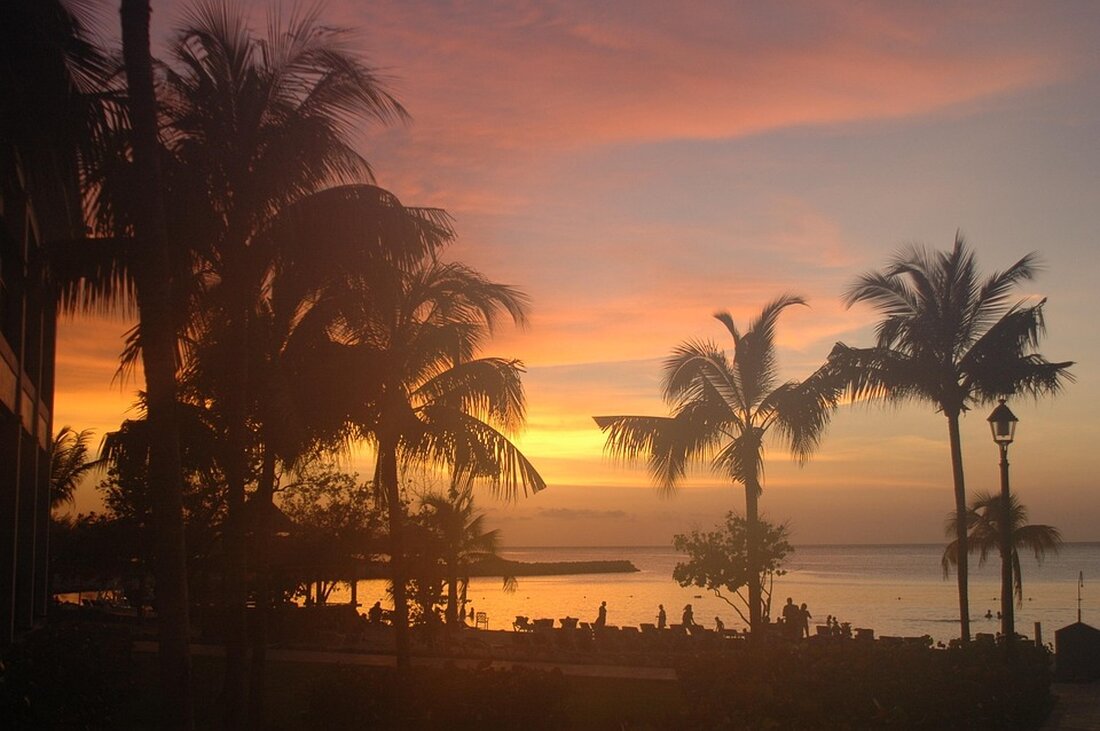Jamaica's crocodile watchdog is fighting to protect feared reptiles
A dedicated “crocodile informant” is fighting the threat of the dreaded crocodiles in Jamaica. He is committed to preserving animals and their habitat.

Jamaica's crocodile watchdog is fighting to protect feared reptiles
In the glowing sunlight of Jamaica, where the wetlands sparkle and teem with life, an ancient predator disappears. In the world there is about 28 species of crocodile, which occur in tropical and subtropical regions. But in Jamaica there is only one species, native mainly to the south coast from St. Thomas to Westmoreland.
The American Crocodile: From Terror to Disappearance
The American crocodile (Crocodylus acutus) was once revered and feared on the island, dominating the mangroves and coastal lakes. But in recent years the population has declined due to illegal hunting, habitat loss and plastic pollution, as well as killings resulting from ongoing fear among locals. been decimated.
The Crocodile Guardian
Lawrence Henriques has made it his life's mission to change that. Known as “The Crocodile Guardian,” he has spent the last four decades fighting for the survival of these animals. He runs it Holland Bay Crocodile Sanctuary, a grassroots conservation project in the southeast of the island that sits on the edge of what he describes as one of Jamaica's last viable crocodile habitats.
Rescue and rearing
From this remote location, he attempts to undo years of damage: nursing sick crocodiles back to health, raising offspring and restoring their numbers in the wild. “There is a real fear of crocodiles in Jamaica,” says Henriques. "They are not tolerated by many people. If one appears in the backyard, it is often killed for its meat or simply out of fear."
The Reality of Croc Attacks
Although crocodiles are often viewed as aggressive and dangerous, attacks are rare. According to the global database CrocAttack There have been 11 incidents in Jamaica in the last decade, including a fatal attack in 2018. That's why Henriques is working to change the narrative about these animals and make people understand that they are much less threatening than their reputation suggests.
Home and study of crocodiles
Henriques, who grew up in the Jamaican capital of Kingston in the 1960s, always had a fondness for “crawling creatures.” But it was the crocodiles that fascinated him the most. “There were a lot more crocodiles and a lot more habitat in those days,” he remembers. “I always had half a dozen baby crocodiles that I raised in my bedroom.” This fascination eventually became his calling. After studying abroad and working with the Scientific Exploration Society, a British charity in Belize, he returned to Jamaica in 1980. He was shocked to find that despite the crocodiles being classified as endangered under the Wildlife Protection Act Since 1971, hardly any practical nature conservation measures have been taken.
Challenges of nature conservation
Henriques offered his support to the Jamaican government, rescuing crocodiles and providing rehabilitation while also working in the citrus industry. He campaigned for animals for almost 20 years before briefly moving to London. Upon his return to Jamaica in 2010, he founded the Holland Bay Crocodile Sanctuary, a facility dedicated to rescue, rehabilitation and public education.
Insight into the problems of illegal trade
Despite legal protections, crocodiles face growing threats in Jamaica. Poaching is widespread and often driven by demand for meat or misunderstood discomfort. Environmental Officer Leighton Mamdeen from the National Environment and Planning Agency ( NEPA ) says, “Poaching is definitely a big problem.” There is reportedly a thriving black market for crocodile meat and eggs in Jamaica, with the meat selling for up to 5,000 Jamaican dollars (US$31) per pound - more than ten times the price of chicken meat.
The loss of habitats
Development is another killer. Jamaica's mangroves and wetlands are being cleared for tourism and housing. This affects the country's coastal protection measures as mangroves reduce wave energy and storm surges and help prevent flooding. This loss also damages biodiversity as they serve as a nursery for fish and a vital habitat for species such as crocodiles. As their territory shrinks, crocodiles are moving closer to humans.
Raise awareness
Despite the challenges, there is a cautious glimmer of hope. Henriques and NEPA have increased their outreach and education programs, particularly in areas near crocodile habitat. “One of the most sustainable actions we have taken is visiting schools,” says Mamdeen. “If you start with the children, you have a greater chance of securing the animals’ future.”
“We can’t lose them,” says Henriques. "They've been here longer than we have. They belong to this country."

 Suche
Suche
 Mein Konto
Mein Konto